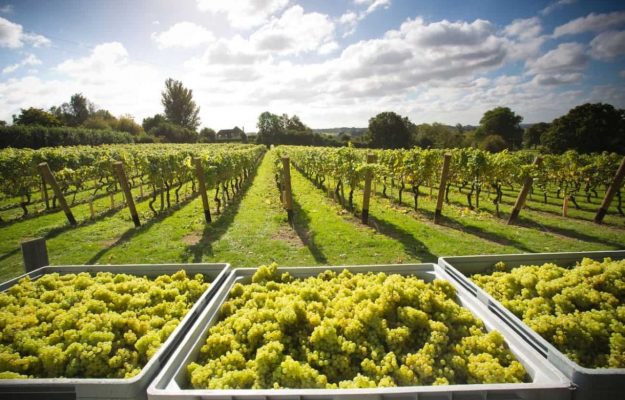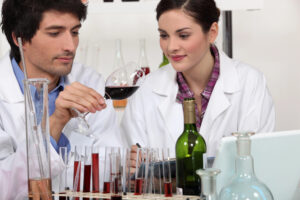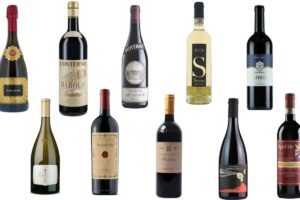The international situation is certainly not one of the easiest ones, and the effects of the pandemic and of the war in Ukraine are reflected in every economic sector, including wine. In Europe, wine is engaged on many fronts, caught in the middle of the “friendly” fire of the European Plan for the Fight against Cancer on one side and of labeling on the other side. Two threats not to be taken lightly, because they are capable of putting in crisis an entire cultural model, that of the Mediterranean Diet, of which wine is a fundamental component. Finished, well beyond the scientific evidence, in the chaos of a public debate that, while aiming at public welfare, ends up clumsily undermining the few certainties, defended, with the strength of reason and evidence, by some of the most important scholars of the Italian academic and scientific world, gathered, at “Vinitaly 2022”, by UIV (Unione Italiana Vini) and Federvini, in the round table “The culture of wine: a Mediterranean model”: Professor Andrea Poli of Nutrition Foundation of Italy, Professor Elisabetta Bernardi, nutritionist, biologist specialized in food science, and collaborator of “Superquark”, Professor Silvana Hrelia, Professor of Biochemistry at the Department of Sciences for the Quality of Life of the University of Bologna, Professor Francesco Visioli, nutritionist at the University of Padua, Professor Ernesto Di Renzo, Professor of Anthropological Disciplines at the Faculty of Medicine of the University Tor Vergata, and Ignacio Sànchez Recarte, Secretary General Comitée Vin.
“The crucial fact to start from is that we know very well the correlation between alcohol and health”, explains Professor Andrea Poli. “Already in 1997, the American Cancer Society explained to us that among teetotalers the mortality rate is identical to that recorded among drinkers, obviously taking into account all causes of death, not just cancer. The mortality rate, among men as well as women, is lower among those who drink a minimum amount of alcohol (one drink per day), coming down even more than 21%. The “Lancet” study, on which the Beca Commission's conclusions are based, does not take into consideration the first part of the curve, the part that shows how mortality is the same for everyone, giving a partial and erroneous picture of reality. Moderate consumers do not have a higher risk of getting cancer, and within certain limits we can even have a protective effect, whereas above certain limits the risk actually increases. Ultimately, wine is not bad, especially in small quantities, because besides alcohol there are many other minor compounds which help our body”.
“Wine best represents Mediterranean drinking: it is a protagonist of the Mediterranean Diet, which in turn is one of the best-known diet models, whose beneficial effects are confirmed by dozens of studies: reduction of cardiovascular events, fight against obesity and hypertension, less cognitive decline, lower incidence of diabetes”, says Elisabetta Bernardi, nutritionist, biologist specializing in food science. “Eating Mediterranean means favoring vegetable elements - such as vegetables, legumes, seeds, - using olive oil as a condiment, consuming a lot of fish, poultry and dairy products in moderation and less red meat, as well as wine of course. Both the Mediterranean Diet Foundation and the “Oldways” pyramid agree on daily doses: one glass of wine per day for women and two for men.
Can we say red wine is good for blood? In a way yes, the beneficial effects of the Mediterranean Diet are hidden in the foods that we should use more. Such as the polyphenols in wine, starting with resveratrol, which was initially linked to increased longevity (in fact it has an effect on a part of the DNA, telomeres, which relates to the aging of chromosomes and hold the DNA together, and therefore slow down the effects of aging). It was then discovered it has beneficial effects on cardiovascular health as a whole, however, in synergy with polyphenols contained in other foods, those of wine alone are not enough. There is also an interesting study, on longevity in 5 steps, according to which it is necessary to keep some habits of life and submit them to a vote (excellent, average and poor), and that concern weight, smoking, physical activity, adherence to guidelines for a healthy diet and consumption of alcoholic beverages. The Italian way of drinking, ultimately, has positive effects on longevity, and does not affect the overall risk of cancer, as well as combating the risk of cardiovascular disease”, concludes the nutritionist and biologist.
“Wine must be considered a liquid food”, begins Professor Silvana Hrelia, Professor of Biochemistry at the Department of Sciences for the Quality of Life at the University of Bologna. “It has a complex matrix, it is not just a hydroalcoholic solution, it has organic acids, alcohols, phytocomponents with nutraceutical action (i.e. nutritional and pharmaceutical). There are elements that have a protective action, but in minimal quantities. Many epidemiological data show a correlation between wine consumption and cardiovascular protection, but the role of these molecules has been exaggerated. They act as switches on our DNA, stimulating it to develop protections. The state of good health, however, is a perfect balance, to which external events contribute, in a negative sense (stress, pollution), from which we must defend ourselves with our lifestyle (from the Greek “dìaita”, meaning regime, style, standard of living) in order to face events in a positive way. It is the acetaldehyde the dangerous molecule of alcohol, but it can be detoxified by enzymatic systems induced also by components of wine, as well as other elements of the Mediterranean Diet, or even better Italian”.
“Everything we buy at the supermarket will have a label, telling us what is good and what is not”, comments Professor Francesco Visioli, nutritionist at the University of Padua. “It is clearly a mistake, there are no bad products, but bad diets: quoting Paracelsus, “it is the dose that makes the poison”. The Nutri-Score, if passed, can only create distortions: in band A (excellent product) we find pizza, in band E (bad product) ham and chocolate. And this is because it is parameterized on 100 grams of product, so we find that olive oil is put worse than Coca-Cola. Its creators defend its conception by arguing that comparing different products to each other makes no sense, while it is a useful guide between similar products. And yet, there are distortions even in this case: taking a typical dessert as an example, the same product with artificial sweeteners comes out better than the traditional one with sugar. We don’t need such labels, we need health policies to improve the diet, starting from nutrition education in schools and among consumers. There is no scientifically valid label, we have to sit around a table and choose the best one, stopping to think about each one’s own garden and think about the good shared at European level”, concludes the nutritionist of the University of Padua.
“Culture has an important voice in explaining the relationship we have with wine, a substance that is exceptional in itself. As an anthropologist, we know we could do without it, yet it hasn’t been that way for at least 8,000 years, from Dionysus to Bacchus to the Bible”, says Professor Ernesto Di Renzo. “It is apt to pursue something that characterizes us, because as a species we hedonistically seek pleasure, a characteristic that has benefited us from the point of view of evolution toward complexity. This creates ideological paradoxes, because pleasure in human history has often been mortified. Wine represents a singularity of culture, in a mathematical sense, something for which normal laws do not apply. It has experienced a series of coincidences that have made it special: we do not drink it for the coercitin or the resveratrol, but to tell our stories, to tell us who we are, to love ourselves, to recognize ourselves as similar among those who drink with us: Epicurus maintained that before establishing what to drink we should decide with whom to drink. According to semiotician Roland Barthes, wine is a plethoric substance, chemistry is not enough to explain it, it would be like judging Michelangelo’s David not by its aesthetics but by how much albite it is composed of. Wine is made to be tasted, but even in Ancient Rome they gave rules: “three craters, one for Venus, one for Dionysus and one for Morpheus”, adds the professor of Anthropological Disciplines at the Faculty of Medicine and Surgery of Tor Vergata University.
“The wine sector must be a leader in consumer communication”, recalls Ignacio Sànchez, secretary general of Comitée Vin. “We must not be afraid to say that risk exists, but we must be at the front, it must become a normal activity. Wine in Moderation promotes, globally, the culture of wine, adapting consumption to risk and conscious drinking. There are many projects on how to talk to Horeca and sommeliers, but we cannot pretend there can be a reduction in risk just by applying a sticker on the bottle. If we are not capable of taking this situation in hand, by being proactive, the risk is that as a sector we will be excluded from the debate about the risks of abuse. Taxes and labeling have a single goal, which is to reduce consumption, so we need to support policies against abuse, calling for a clear distinction between consumption and abuse, which undermines consumer health. This is how we will do justice to the majority of people, those who drink in moderation. In Italy there are less risks related to alcohol abuse than in any other country, we have a strong culture to share”.
For the president of the European Association Wine in moderation, Sandro Sartor “the sector absolutely agrees with the need, by public institutions, to implement effective policies to fight alcohol abuse. The wine industry is already doing this and it will multiply its efforts in order to affirm more and more the binomial wine-moderation through training initiatives towards wine lovers, the world of wine tourism, winemakers, sommeliers and culture. wine in Italy is not only an alcoholic beverage, its perception is an integral part of a Mediterranean model which is the antithesis of the compulsive approach. This assumption is also confirmed by a recent Eurostat survey, which indicates our country as the last one in Europe, after Cyprus, for episodes related to excessive consumption of alcohol”.
On the political front, waiting for the plans of the World Health Organization (WHO) - on the ballot in May -, and the European initiatives on promotion, taxation and Nutriscore labeling, under discussion in the coming months, for the Minister of Agriculture Stefano Patuanelli, “we must have the courage to tell the truth, and say that alcohol is a problem for certain people, with certain behaviors and in certain countries. In this case, however, we cannot refer to the use, but to the abuse of certain substances, and these are two very different things. Therefore, I would like to thank all the European parliamentarians who have in some way foiled a dynamic that was dangerous, and I do not say this to defend the producers at sword point”. For the Undersecretary of Agriculture Policies (in charge of wine) Gian Marco Centinaio, “it is necessary to bring to people's attention what concerns wine. In front of a glass of wine negotiations begin, with wine we promote the territories. Wine is sustainability and identity, it looks to the new generations, despite EU attempts to penalize it, from the Cancer Plan to Nutriscore. And we're not just talking about Italian wine, but European wine, which parliamentarians of all parties have defended. The Italian system, in this sense, has held its own, lobbying in a healthy way: sustainability means future, new generations, future, wine is useful for work but not only, young people approach agriculture with wine. Behind a glass of wine there is a territory, a history, a family, historical events, but also other agri-food products, which go to pull. Behind a glass of wine there is the attention for our interlocutor. Our country produces important wines, there are territories known in the world thanks to their wines. The work we have to do is to understand that wine is our territory. Moreover, the Mediterranean Diet is a Unesco heritage and wine is part of it. Valorization, protection and promotion are the watchwords, talking about Italian wine means talking about a product we can be proud of”, Centinaio concluded.
Copyright © 2000/2026
Contatti: info@winenews.it
Seguici anche su Twitter: @WineNewsIt
Seguici anche su Facebook: @winenewsit
Questo articolo è tratto dall'archivio di WineNews - Tutti i diritti riservati - Copyright © 2000/2026
























































































































































































